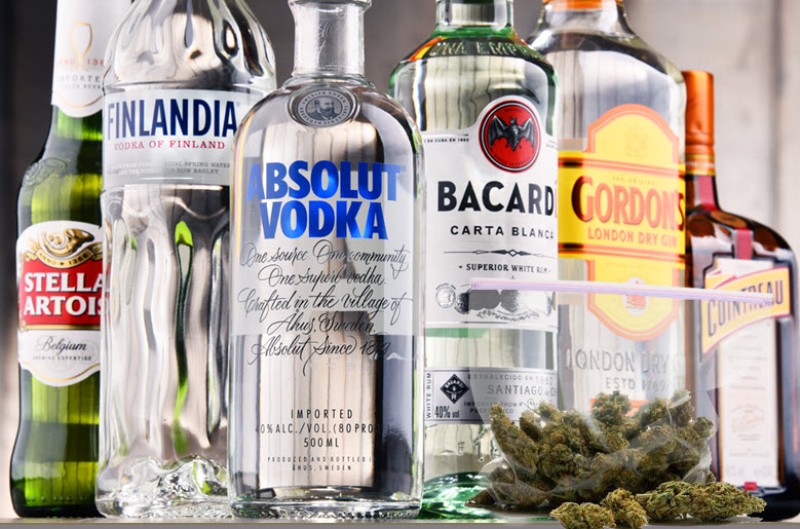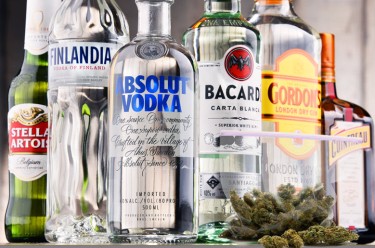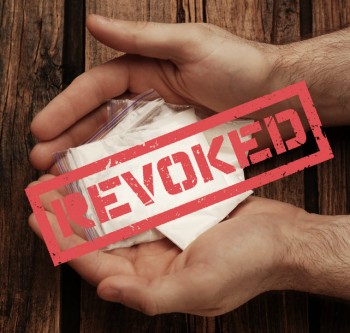Pennsylvania legislators have developed three distinct proposals to achieve multiple objectives: legalizing recreational cannabis, delivering social justice to individuals with minor cannabis convictions, and maximizing the economic benefits of a billion-dollar industry. Their innovative plans will cater to various needs and objectives while paving the way for a more equitable and prosperous future.
In a groundbreaking move, two co-sponsorship memos are currently making the rounds in both the House and Senate. The memos, backed by State Senator Marty Flynn of Lackawanna/Lehigh and State Representative David Delloso of Delaware, propose an ingenious idea - the sale of marijuana through state-owned liquor stores, with strict age restrictions in place to ensure it is only possessed and used by adults aged 21 and over. Furthermore, the proposals would allow Pennsylvanians to grow and process up to six marijuana plants for personal use, promoting self-sufficiency and personal responsibility.
By mandating that all marijuana sales be conducted through the state system, the commonwealth would secure a monopoly on both liquor and cannabis sales while also promoting the use of union labor. Campaign finance records reveal that both Delloso and Flynn enjoy strong support from unions, making their proposals a step towards fostering greater economic equity and workers' rights in Pennsylvania.
State Reps. Donna Bullock, D-Philadelphia, and Dan Frankel, D-Allegheny, have crafted a new memo that takes a different approach to the issue of sales within the state liquor system. Instead, their proposal focuses on achieving five crucial objectives: safeguarding consumers, promoting social justice, advancing economic equity, preventing substance abuse, and generating revenue.
Frankel and Bullock believe it's time to embrace a new perspective on the regulation and taxation of this significant agricultural commodity, with the ultimate goal of enhancing the health and overall welfare of the people of Pennsylvania. The common thread in all three memos strongly emphasizes promoting social justice. Although Frankel and Bullock's memo provides fewer specific legislative details, the memos authored by Delloso and Flynn both call for the expungement of minor marijuana-related offenses.
Cannabis Legalization in Pennsylvania
Since cannabis legalization for medicinal purposes in 2018, the sales of medical marijuana in Pennsylvania have reached an astounding $6.3 billion as of November. In the 12 months leading up to October, dispensaries alone made approximately $1.4 billion in sales, according to data provided by the state Medical Marijuana Advisory Board. With 423,443 active certified patients, the demand for medical marijuana in Pennsylvania shows no signs of slowing down.
Pennsylvania's growers and processors are subject to a 5% gross receipts tax on their sales to dispensaries. The projected gross receipts for the upcoming fiscal year are estimated at $41.8 million, as indicated by the current state budget. Patients are not required to pay sales tax on their medical marijuana purchases.
In 2018, Eugene DePasquale, the former Auditor General, conducted an analysis that estimated the size of Pennsylvania's potential recreational marijuana industry to be worth $1.66 billion. Fast forward to budget hearings in 2021, where Matthew Knittel, director of the Pennsylvania Independent Fiscal Office, projected that legalizing recreational marijuana could generate anywhere from $500 million to $700 million in tax revenue for the state.
Although marijuana for adult use is now legal in 21 states, including Pennsylvania's neighboring states like New Jersey, Maryland, and New York, it remains illegal under federal law. At a state Senate hearing on legalization last year, two industry experts estimated that Pennsylvania's illicit marijuana trade amounts to a staggering $3 billion to $4 billion annually. Despite the circulation of the three memos, there has yet to be any formal legislative proposal.
The proposed bill specified that the legal age for marijuana use would be 21, outlining various production, sales, possession, and criminal record expungement regulations. Notably, the bill did not aim to alter laws about impaired driving. However, it did seek to ensure that workers are safeguarded by prohibiting their termination based on positive drug tests at non-intoxicating levels. Despite being referred to the House Liquor Control Committee, the bill ultimately remained stagnant for the session.
When the Republican Party held a majority, the prospects for legalization were quite limited. However, with Democrats now having broader support for the cause, the possibility of pro-marijuana legislation passing the House is not entirely far-fetched, although the votes are not guaranteed. Unfortunately, even if such legislation did succeed in the House, the odds of it being passed in the state Senate remain pretty slim, given the clear opposition from Republicans on this issue.
Redrafting the Medical Program.
A bipartisan effort by two state senators aims to implement significant changes that would expand the scope of those eligible for a medical marijuana card in Pennsylvania. Currently, the law only permits a limited number of doctors and patients to participate. Doctors must undergo a four-hour training course and register with the state before approving patients. Only individuals with one of the 23 approved conditions are also eligible for a medical marijuana card.
According to state Senators James Brewster (D., Allegheny) and Mike Regan (R., York), elected officials and bureaucratic staff members are not best suited to determine which ailments warrant the use of medical marijuana. As such, their proposal aims to allow any doctor authorized to prescribe controlled substances the autonomy to decide whether a patient may benefit from cannabis usage.
The proposal the two state senators put forth would eliminate the requirement for medical marijuana card renewal, which is presently mandated by the state. The yearly cost of renewing a card is $50, with specific financial hardship programs such as Medicaid being exempt from the fee, per the department's regulations.
Conclusion
Pennsylvania's approach to medical and recreational marijuana usage continues to evolve, with proposed legislative changes aimed at expanding eligibility for medical marijuana use and legalizing recreational use.
While progress has been made, such as the legalization of medical marijuana sales in 2018, the issue remains politically divisive, with opposition from Republican lawmakers and concern over the impact of legalization on public health and safety.
Despite this, there is increasing support for changes to the existing laws, with experts predicting significant economic gains if recreational use is legalized. As the debate over marijuana legalization continues in Pennsylvania, it remains to be seen what the future holds for the state's approach to cannabis regulation.
LIQUOR STORES AND WEED, READ ON...
IS CANNABIS MORE POPULAR THAN BOOZE AFTER COVID?








